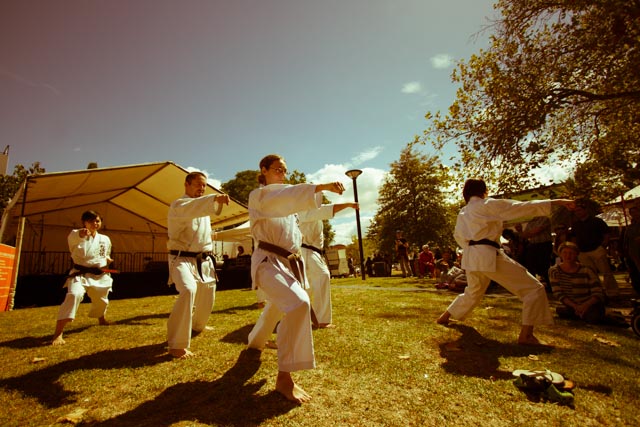Take a moment and think about all the things you have been told in your life. All the things that have been said to you. All the heart-to-hearts, the tete-a-tetes, all the deep-and-meaningfuls. The advice, the encouragements, the admonishments. How much can you remember? And from whose mouths did the words come?
Now take another moment and think of how you have felt. Or, and this is very subjective phrasing, how you have been made to feel. And think of the people involved – those who have had sufficient impact on you that you had no choice but to acknowledge your emotional response. I will wager that these ’emotional memories’, especially the negative ones, are far easier to recall than the countless verbal exchanges you have had. Of course the vehicle that triggers the impact can often be word-borne and this may be merely one part of a potent coalescence of the various factors that comprise communication.
How we communicate with each other can be conditioned by countless factors and nuances. Any one of the following can heavily colour the overall effect of something that might otherwise be ‘just words’: attitude, intent, body language, tone of voice, eye contact, relationship to speaker, personal space, environment, time of day, recent events(both public and private), and timing. That’s just off the top of my head and doubtless the list could be extended but we can probably agree that as ever, where people are concerned, nothing is as simple as it appears.
The last factor on my list, timing, can be viewed on both a micro and macro level. The former might mean the moment takes place first thing in the morning before you are fully awake or perhaps happens in the middle of the day when you are trying to juggle a million different mental distractions and logistical demands. It almost certainly won’t occur when you are expecting it as anticipation and preparedness would preclude a lasting impact. Timing on a macro scale just means where you are in your life at that time. Are you in a good place, a sad place, an angry place? Are the cards falling the way you want or is everything a battle? At this, bigger picture level, it is very hard to gain control and you may be like the forgotten sock in the washing machine that keeps getting put through another cycle. You’re thinking “I’m clean! I’m done! I’m ready to step out and get on with my life – what the hell am I still doing in here with all the dirty jocks? Let me out! Blub, blub, blub….”
So depending on where you are at you will either be in a great position to receive what’s coming your way, or not. To return to my starting point, the difference between things heard/understood (processed intellectually) and things felt (processed emotionally) is that the latter leaves a far deeper imprint. I have vivid memories of being completely caught off guard in both positive and negative situations and the reverberations of those moments continue to shape the person I am right now. Imagine yourself as an ocean, vast and calm and deep, that is suddenly disturbed by a far-off whale song. Eerie and beautiful, distant yet irrefutably reaching and affecting you, it is a reminder that you are not elemental; there are things inside of you that move in the depths of your being. Sometimes those things scare you, sometimes they fascinate you. They can be a source of both comfort and anxiety because they represent a simple truth – you can be moved.
You might be thinking “So what? People affect us. The only remarkable thing here is he has no problem imagining himself as both a sock and an ocean. Hell-ooo…?” At the start of the post I italicised ‘made to feel’ because some would argue that no one can make anyone feel anything at all, that only you can make yourself feel something. This is pretty disingenuous and a great get-out clause for anyone who wreaks emotional havoc in the lives of others. It reminds me of John Malkovich’s Valmont in Stephen Frears’ 1988 film of Dangerous Liaisons and his ‘it’s beyond my control’ tactic when reluctantly extricating himself from his affair with Michelle Pfeiffer’s Tourvel. In spite of what we might otherwise prefer, we are emotional beings who unless we have become hermits are part of human society and subject to the mortar bombs and shrapnel of everyday interaction.
The thing is, it is not an either/or situation. It’s not that you are either affected by other people or that you can only be affected by yourself; it’s that both are there. After all, you are the most present person in your life. Nobody spends more time with you than yourself. So inevitably my question is how do you make yourself feel? Can you run through the checklist above and apply it to your own self-directed communication? I’m asking myself that question today because I have just had two nights of filthy black moods where I have put my head on the pillow and fallen asleep like the king in Hamlet, with poison seeping through my brain. I have woken up each following morning feeling fine but I have to ask myself – “why am I tolerating such self-sabotage?” That’s a rhetorical question so no need for answers on a postcard.
I suppose the conclusion I’m inching towards is to give some thought to the emotional impact you have on yourself. You are your own caretaker, your own guardian so resist the temptation to be cynical about your right to seek fulfillment and happiness. My own challenge is to keep addressing patterns of behaviour that lead me to dark places, patterns which are fundamentally related to fear and avoidance. I endlessly emphasise to my fellow karate travelers the importance of recovery. It doesn’t matter a damn when you make a mistake in your kata or when you get knocked down during kumite (sparring) – the most important thing is your ability to recover, your insistence that you’re still in the fight, your willingness to stand up, wipe your nose and face your opponent head on. In karate we call this ‘spirit’ and we refer to it constantly in our exhortations to produce dedicated and ever-improving martial artists.
In life we might refer it more simply as self-belief.




Good man dara,nail on the head again.keep it up buddy.S
Great lucid post. Love it. Love the whale song analogy.
I grew up in a combative family where negotiation was unheard of. Still is. I work for myself, freelance, and the ability to fight hard (tactfully) for my own interests is an ingoing piece of self-repair, as it were. We do emerge from our lives more or less intact and strong/damaged. The hardest part for me has been learning that the world is full of people who *will* negotiate, that my own emotional needs (for respect) are absolutely valid.
Wonderful post. I relate to this very much: “My own challenge is to keep addressing patterns of behaviour that lead me to dark places, patterns which are fundamentally related to fear and avoidance.” Glad to have found your post and blog.